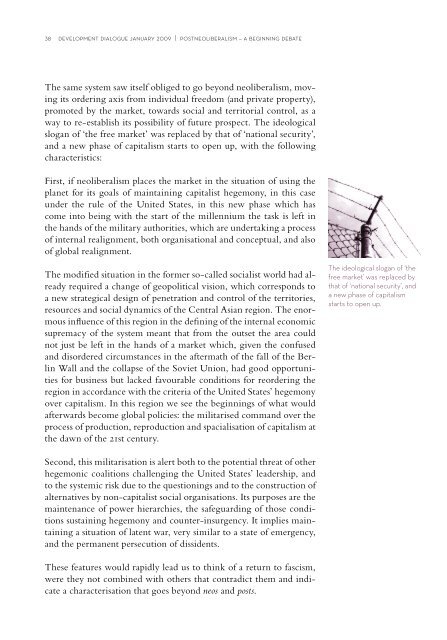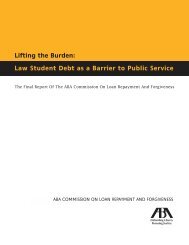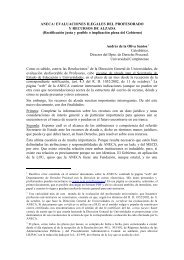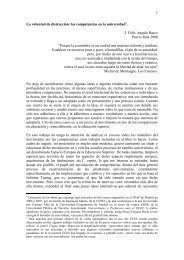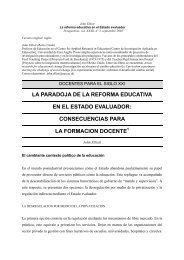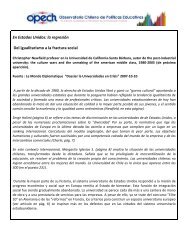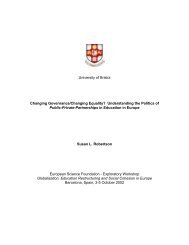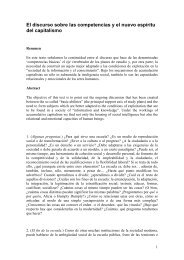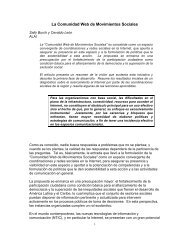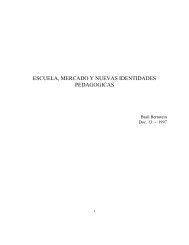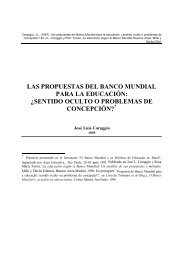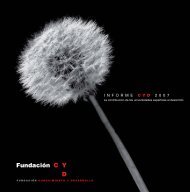no. 51 | january 2009
no. 51 | january 2009
no. 51 | january 2009
- No tags were found...
You also want an ePaper? Increase the reach of your titles
YUMPU automatically turns print PDFs into web optimized ePapers that Google loves.
38 development dialogue <strong>january</strong> <strong>2009</strong> | postneoliberalism – a beginning debateThe same system saw itself obliged to go beyond neoliberalism, movingits ordering axis from individual freedom (and private property),promoted by the market, towards social and territorial control, as away to re-establish its possibility of future prospect. The ideologicalslogan of ‘the free market’ was replaced by that of ‘national security’,and a new phase of capitalism starts to open up, with the followingcharacteristics:First, if neoliberalism places the market in the situation of using theplanet for its goals of maintaining capitalist hegemony, in this caseunder the rule of the United States, in this new phase which hascome into being with the start of the millennium the task is left inthe hands of the military authorities, which are undertaking a processof internal realignment, both organisational and conceptual, and alsoof global realignment.The modified situation in the former so-called socialist world had alreadyrequired a change of geopolitical vision, which corresponds toa new strategical design of penetration and control of the territories,resources and social dynamics of the Central Asian region. The e<strong>no</strong>rmousinfluence of this region in the defining of the internal eco<strong>no</strong>micsupremacy of the system meant that from the outset the area could<strong>no</strong>t just be left in the hands of a market which, given the confusedand disordered circumstances in the aftermath of the fall of the BerlinWall and the collapse of the Soviet Union, had good opportunitiesfor business but lacked favourable conditions for reordering theregion in accordance with the criteria of the United States’ hegemonyover capitalism. In this region we see the beginnings of what wouldafterwards become global policies: the militarised command over theprocess of production, reproduction and spacialisation of capitalism atthe dawn of the 21st century.The ideological slogan of ‘thefree market’ was replaced bythat of ‘national security’, anda new phase of capitalismstarts to open up.Second, this militarisation is alert both to the potential threat of otherhegemonic coalitions challenging the United States’ leadership, andto the systemic risk due to the questionings and to the construction ofalternatives by <strong>no</strong>n-capitalist social organisations. Its purposes are themaintenance of power hierarchies, the safeguarding of those conditionssustaining hegemony and counter-insurgency. It implies maintaininga situation of latent war, very similar to a state of emergency,and the permanent persecution of dissidents.These features would rapidly lead us to think of a return to fascism,were they <strong>no</strong>t combined with others that contradict them and indicatea characterisation that goes beyond neos and posts.


